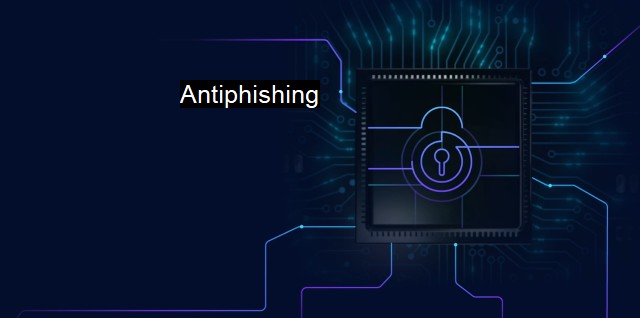What is Antiphishing?
Protecting Your Digital World: The Importance of Anti-Phishing Technology in the Age of Cybercrime
Antiphishing is a significant term used profoundly in the realm of cybersecurity and antivirus. It essentially refers to different sets of procedures and systems designed to protect individuals from phishing - a deceptive activity utilized by fraudsters aiming to acquire personal, confidential information such as usernames, passwords, and credit card numbers by masking as a responsible organization in an electronic communication. These tactics are most commonly used via email spoofs, instant messaging, and increasingly, through fraudulent websites.Antiphishing initiatives focus primarily on two elements: preventing phishing attacks from happening in the first place, and responding decisively when such attacks do occur. The objective is to secure the sender's identity and legitimacy, thus reinforcing trust in online transactions and communications.
The very essence of phishing revolves around scammers using authentic-looking emails, websites, or messages to dupe recipients into divulging sensitive information. Subsequently, the phishers use the information to commit fraud or identity theft. Given how sophisticated phishing strategies have become, it's increasingly crucial to employ active antiphishing tactics to prevent these illegitimate activities.
Antiphishing solutions typically include mail filters that identify and isolate suspected phishing emails, often directing them directly to your junk or spam folders before you interact with them. Extensive measures analyze an email's source information beyond what's presented to the recipient, while comparing it to known phishing sites or identifying suspicious content such as links that don't match their display text. Firewalls can also act as antiphishing tools by warning or preventing users from accessing suspicious websites.
Many progressive antiphishing tools operate using machine-learning algorithms and artificial intelligence-enhanced systems to proactively recognize probable phishing attempts. By incessantly adapting to new phishing tactics and keeping major security databases updated, these tools significantly enhance their effectiveness over conventional, static identification methods.
Antivirus software is an important part of these antiphishing initiatives, too. Premium cybersecurity solutions usually integrate antiphishing components within their feature sets, adding a vital layer of protection against online fraud. Modern antivirus software not only scans for and eradicates viruses but also helps to identify and neutralize phishing attempts in real-time.
Another vital component of antiphishing strategy is user awareness and education. While sophisticated spam filters and advanced algorithms perform an incredible job of blocking the majority of phishing attempts, some inevitably slip through. Therefore, cybersecurity training programs often emphasize on user education so that individuals recognize a phishing attempt when they see one.
It includes teaching users about the unofficial tone used in emails, multiple misspelled words, threats, or urgent actions – common indicators of phishing emails. users should also be taught to chew over before clicking on links within emails and providing sensitive information. By promoting an awareness culture, the likelihood of successful phishing attempts significantly falls.
Antiphishing is a collaborative, multifaceted approach within cybersecurity that works by mitigating potential attacks leveraging various tools and educating users. In an era where cyber threats have become common, and their impacts exceedingly damaging, antiphishing efforts provide an essential shield of protection to the individual user as well as large organizations. It's no secret that the future of cybersecurity holds great reliance on antiphishing, considering the increasing usage of digital services and the enrichment of sensitive data processing on complex cyberspaces.

Antiphishing FAQs
What is Antiphishing?
Antiphishing is a cybersecurity measure that aims to protect users from online scams or phishing attacks.How does Antiphishing work?
Antiphishing works by analyzing the content of the email or website a user is accessing to detect potential phishing threats. It may also involve blocking known phishing sites or using machine learning algorithms to identify patterns and anomalies in web traffic.Why is Antiphishing important?
Antiphishing is important because phishing attacks are becoming increasingly sophisticated, and can result in significant financial losses or identity theft for victims. Implementing antiphishing measures can help prevent these attacks and reduce the risk of data breaches.What antiphishing tools are available?
There are a variety of antiphishing tools available, including antivirus software, browser extensions, and email filters. Some of the most popular antiphishing tools include Avast, Norton, and McAfee, which offer a range of cybersecurity features in addition to antiphishing protection.Related Topics
Phishing attacks Email security Social engineering attacks Malware protection Cybersecurity awareness training
| | A | | | B | | | C | | | D | | | E | | | F | | | G | | | H | | | I | | | J | | | K | | | L | | | M | |
| | N | | | O | | | P | | | Q | | | R | | | S | | | T | | | U | | | V | | | W | | | X | | | Y | | | Z | |
| | 1 | | | 2 | | | 3 | | | 4 | | | 7 | | | 8 | | |||||||